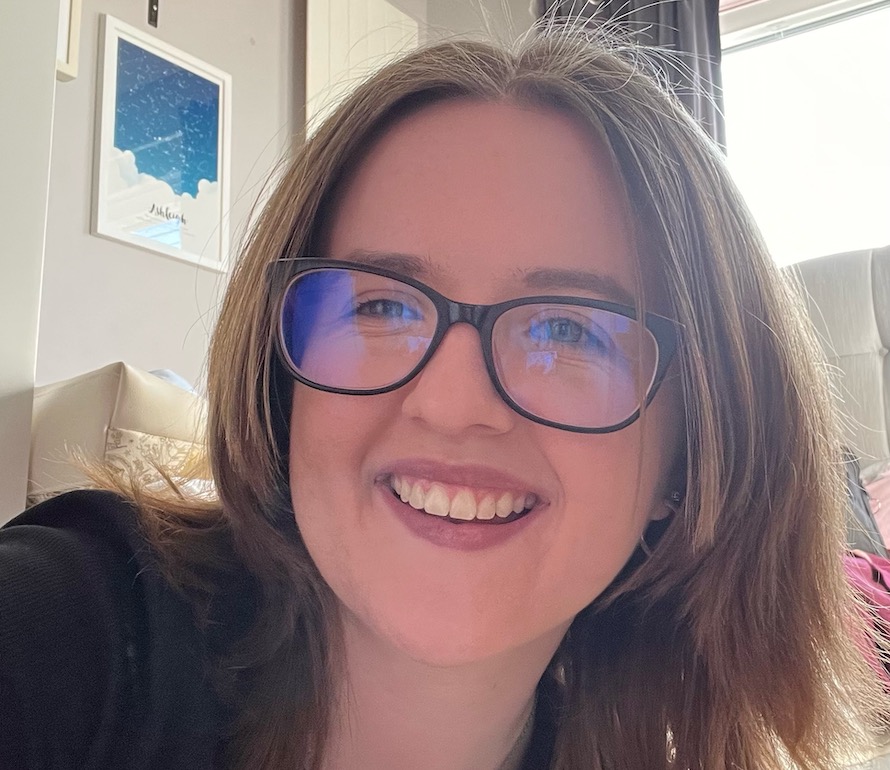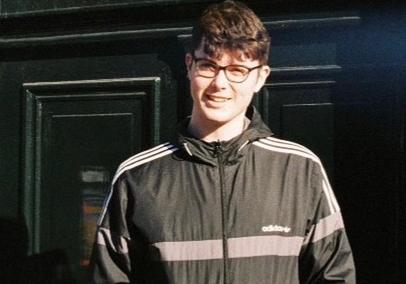“If I go on a hike, my legs could be killing me for a week.”
Tuesday, 26 September, 2023
Case study
To mark Childhood Cancer Awareness month, we speak to Ashleigh Kiernan (20), a member of the Young Persons Advisory Group ((opens in a new window)YPAG), a patient voice initiative of Systems Biology Ireland (SBI), spearheaded by Dr Peter McCarthy, clinical research fellow in the Bond Group at UCD. Funded by Science Foundation Ireland, SBI is now one of the larger childhood cancer research centres in Europe. Ashleigh speaks about the longer-term repercussions of surviving childhood cancer and of her hopes that UCD research - such as the pioneering ‘digital twins’ work carried out by SBI director Prof Walter Kolch - will mitigate the devastating side effects of childhood cancer treatments.

Ashleigh Kiernan was diagnosed with acute lymphoblastic leukaemia (ALL), aged 7, in December 2010.
Her mother noticed “little purple spots” appearing on her skin, says Ashleigh, which were quickly identified as the petechiae rash that can be, she adds, “one of the signs for leukaemia”.
She had to be homeschooled for six months while undergoing chemotherapy.
“I couldn't walk due to the treatment I was taking, that’s how strong it is,” she explains, adding that these severe side effects were closely monitored.
“They’re very much on top of that as you’re going through treatment. But post-treatment there’s a huge lack of that follow-up, in my experience. I was very much a normal citizen outpatient again.”
After two years and three months of chemotherapy, followed by five years of remission, Ashleigh was 15 when her life resumed. Five years later the student of classical civilisation and philosophy in Trinity College Dublin still lives with after effects post-treatment.
“I’m on a waiting list for cardiology in St James’s for two years now and I’ve had other things pop up in terms of long-term side effects. The biggest one is severe muscle fatigue. If I were to go on a hike one day, my legs could be killing me for a week. Standing for long periods of time is difficult too; I really notice when I’m at a concert.”
Ashleigh lost a lot of weight during her chemotherapy treatment, so the dose was reduced accordingly. For this reason she believes she has managed to avoid other common side effects.
“My touch test wasn’t bad, which means I have good sensation in my fingertips. I’m lucky because the chemotherapy I was on often damages those nerve endings. The nurse said she sees lots of kids who have lost a lot of sensation in their fingers because of it.”
Ashleigh does advocacy work and says most of the information she gets about after effects post treatment comes from her peers rather than from the medical community.
“I know people who have lost their hearing prematurely twenty years later. You literally never know when these side effects are going to arise.”
She got involved with YPAG through the support group CanTeen Ireland and enjoyed a trip to the Systems Biology Ireland labs in UCD last February.
“It was really interesting to get an in-depth look into some of the research looking at how childhood cancer treatment can be improved so there are fewer long-term side effects. Back when I was in hospital in 2010, and still to this day, the treatment very much takes the approach of throwing everything at it and seeing what sticks. They kind of attack everything and hope it works,” she says. “So it's nice to see that the research now is so concentrated on precision treatment and only giving what they have to, and targeting what they have to, instead of going for everything. Because that’s the leading cause of so many after effects post-treatment and during treatment as well.”
